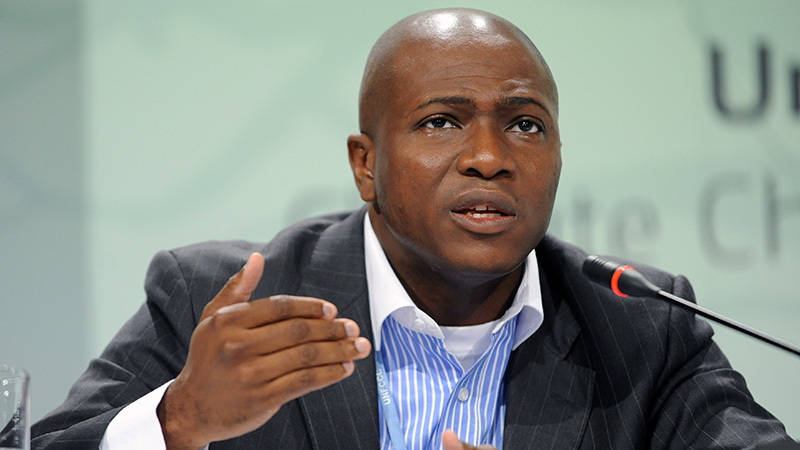A coalition of the world’s poorest countries will ask the developed world to boost their planned greenhouse gas cuts when they meet for UN climate talks in Bonn next week.
Nearly 200 countries approved the Paris Agreement on climate change last December, which aims to limit warming to “well below 2C” from pre industrial levels.
Under that deal, the world’s largest and smallest economies set their own emission targets, but analysts say this will not be enough to keep temperatures within safe limits.
In a statement sent to media, DR Congo envoy Tosi Mpanu Mpanu, who leads the 48-strong Least Developed Country group, said the group planned to call for greater carbon cuts before 2020.
“Even if current pledges are fulfilled, the world is on a path to over 3C of warming, well above the global goal of 1.5C set in Paris; and that is without considering that developing countries need support to the tune of $4tn to meet these pledges,” he said.
Comment: World’s vulnerable must be at the heart of low carbon transition
The UN plans to review progress towards the 2C goal in 2018, but so far few countries have announced new carbon cutting plans since the Paris Agreement was finalised.
On Thursday, the US unveiled rules to slash methane leaks from oil and gas wells, part of a wider plan to cut emissions 40-45% on 2012 levels by 2025.
Elsewhere, action is thin on the ground. Canada also plans to slash methane emissions, but weak federal powers mean prime minister Justin Trudeau is relying on provinces to raise their game.
Meanwhile moves in Brussels to get the EU’s 28 member states to ratchet up planned cuts from 40% on 1990 levels to 50% have been blocked by Poland and other eastern European governments.
Patricia Espinosa: Who is the UN’s incoming climate change chief?
That, said Mpanu Mpanu, is insufficient given the scale of the challenge facing vulnerable countries.
“The earth’s oceans are rising, disease is spreading, our land is no longer producing the food we need to survive,” he said.
“The world must adapt to meet the unavoidable impacts of climate change head on, or face the consequences.”
On Wednesday, the UN Environment Programme released its latest “adaptation gap” report, which suggests the annual costs of coping with rising seas, floods and droughts could hit $500 billion by 2050.
That’s a significant rise on the $70-100 billion estimated in a 2010 World Bank study. Finance flows to help developing countries prepare for extreme weather may have to increase tenfold by 2030, UNEP said.
“It is vital that governments understand the costs involved in adapting to climate change,” said Ibrahim Thiaw, UNEP deputy executive director.
“This report serves as a powerful reminder that climate change will continue to have serious economic costs.”
France’s top climate diplomat Laurence Tubiana, one of the architects of the Paris deal, warned this week against complacency in the wake of that agreement.
“We have to be realistic – it’s nice and a big achievement but nothing is done,” she said.
“We have to do everything. We have to translate the contribution of countries into proper public policy and investment plans and organise the financial community.”
So far 177 countries have signed and 16 ratified the Paris Agreement. To come into force, 55 countries covering 55% of global emissions must formally join the treaty.
